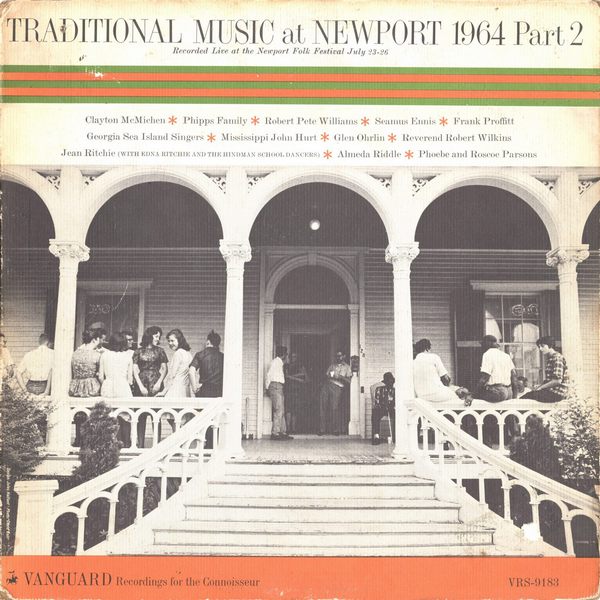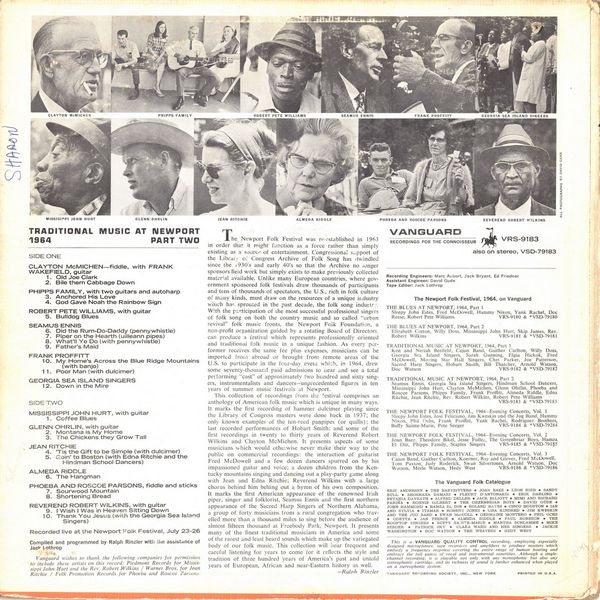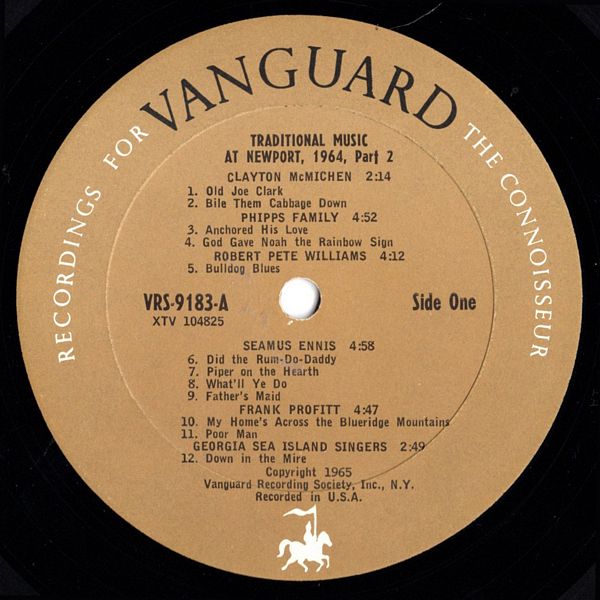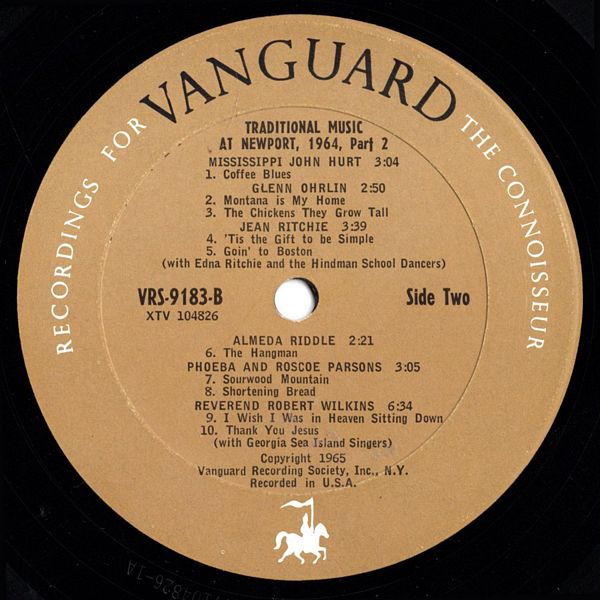
 |


 |
Sleeve Notes
The Newport Folk Festival was re established in 1963 in order that it might function as a force rather than simply existing as a source of entertainment. Congressional support of the Library of Congress Archive of Folk Song has dwindled since the 1930's and early 40's so that the Archive no longer sponsors field work but simply exists to make previously collected material available. Unlike many European countries, where government sponsored folk festivals draw thousands of participants and tens of thousands of spectators, the US., rich in folk culture of many kinds, must draw on the resources of a unique industry which has sprouted in the past decade, the folk song industry. With the participation of the most successful professional singers of folk song on both the country music and so called "urban revival" folk music fronts, the Newport Folk Foundation, a non-profit organization guided by a rotating Board of Directors, can produce a festival which represents professionally oriented and traditional folk music in a unique fashion. As every performer receives the same fee plus expenses, musicians can be imported from abroad or brought from remote areas of the U.S. to participate in the four-day event which, in 1964, drew some seventy-thousand paid admissions to hear and see a total performing "cast" of approximately two hundred and sixty singers, instrumentalists and dancers — unprecedented figures in ten years of summer music festivals at Newport.
This collection of recordings from the Festival comprises an anthology of American folk music which is unique in many ways. It marks the first recording of hammer dulcimer playing since the Library of Congress masters were done back in 1937; the only known examples of the ten-reed panpipes (or quills); the last recorded performances of Hobart Smith; and some of the first recordings in twenty to thirty years of Reverend Robert Wilkins and Clayton McMichen. It presents aspects of some musicians which would otherwise never make their way to the public on commercial recordings: the interaction of guitarist Fred McDowell and a few dozen dancers spurred on by his impassioned guitar and voice; a dozen children from the Kentucky mountains singing and dancing out a play-party game along with Jean and Edna Ritchie; Reverend Wilkins with a large chorus behind him belting out a hymn of his own composition. It marks the first American appearance of the renowned Irish piper, singer and folklorist, Seamus Ennis and the first northern appearance of the Sacred Harp Singers of Northern Alabama, a group of forty musicians from a rural congregation who travelled more than a thousand miles to sing before the audience of almost fifteen thousand at Freebody Park, Newport. It presents many of the finest traditional musicians in America and some of the rarest and least heard sounds which make up the variegated body of our folk music. This collection will bear frequent and careful listening for years to come for it reflects the style and tradition of three hundred years of America's past and untold years of European, African and near-Eastern history as well.
Ralph Rinzler